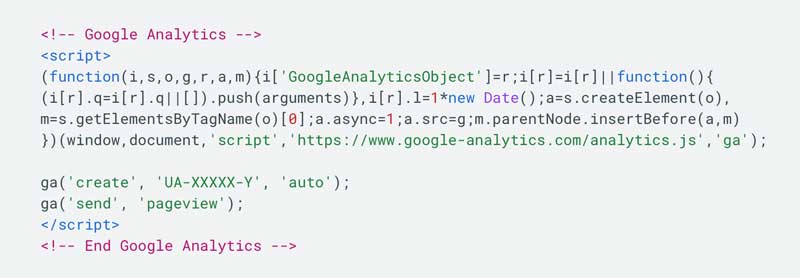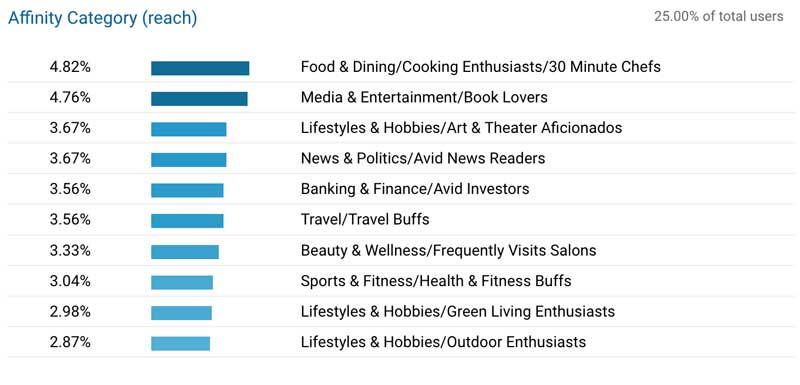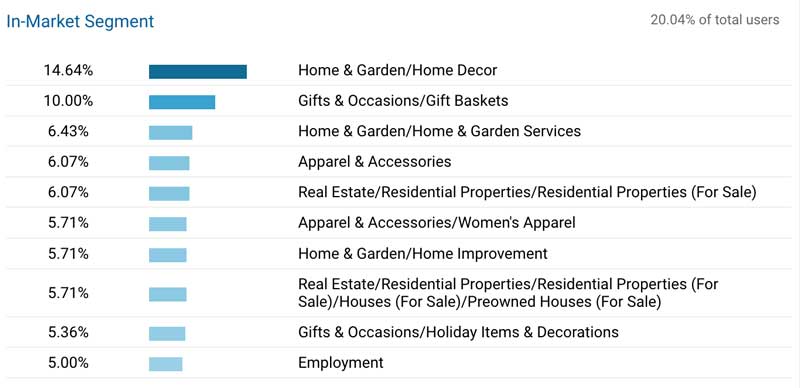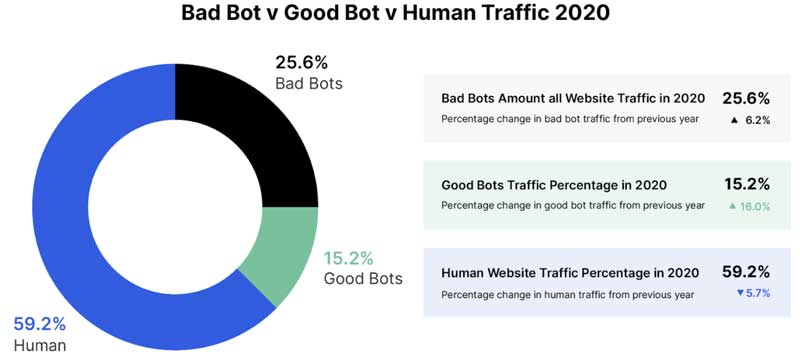UPDATE, July 2023:
Google’s Universal Analytics officially stopped working on July 1. That means you’ll no longer be able to collect data in UA. Your site has likely already been converted to use the new GA4 code, but Google did not provide a way to import that data from UA to GA4. Worse, Google will be deleting all UA data in the future.
That’s why Fathom Analytics–the analytics software I use and recommend–created a GA importer, so you can save your UA (or GA4) data forever by moving it to Fathom. They’ve already imported over 7 billion pageviews from GA to their privacy-first, GDPR-compliant software. And best of all, Fathom is so easy to use you don’t have to worry about a course or training.
You can try Fathom for free for 30 days.
Check out Fathom Analytics today, and use this link to get a $10 credit on your first bill.
If you’ve visited just about any website today besides the one you’re on right now, doebankdesigns.com, then you’ve been willingly–if unknowingly–giving away mountains of data about yourself through a tool called Google Analytics. What kind of data? Data such as:
- What you searched for that led you to a site
- Your location history
- The device you use and what network you’re on
- People you’ve been in contact with
- Purchases you’ve made (and purchases you might make!)
- So much more!
Google has built its trillion-dollar empire by giving people free services to use. Services such as Gmail, Google Docs, Google Drive, YouTube, Google Photos, etc. are all free to use.
At one time in the past, we would’ve said that sounds too good to be true. And we would’ve been right.
Google didn’t build its business by giving you multiple tools and expecting nothing in return. No, by using their tools, you’ve agreed to give them access to just about everything you do online–and in some cases, offline as well. One way Google does this is through its Google Analytics tracking code installed on more than 86% of websites on the Internet!
Google takes that data it gathers from you and about you and sells it to advertisers. The last time you visited your in-laws and talked about the new fire pit they have in their backyard, were you surprised to get home and open up your phone only to find that you were getting ads for fire pits? You didn’t even search anything about it! Was Google listening?
No, not really. But Google knows that you were with your in-laws. Google knows that they recently bought a fire pit. And Google analyzed a great deal of other data about you to determine that you might also be likely to buy a fire pit. And so it served you those ads. (By the way, Facebook does this, too. But you already knew that, didn’t you?)
What is Google Analytics used for?
One way that Google collects data is through a small bit of tracking code from Google Analytics (GA) that website owners often have installed on their websites. It can look something like this:

Confusing, right? Basically, this code tells Google how to collect data while you’re on a site. Essentially, Google Analytics is a massive tool for developers to collect just about any data they want from website visitors.
What does Google Analytics track?
Developers can do amazing things with this code. Some of those things are very helpful for site owners. For example, by having GA code on their website, a site owner can find out:
- How many people visit their site over a given period
- What cities and countries people visit their site from
- What kind of device site visitors are using (laptop, mobile phone, Windows, Mac, etc.)
- How site visitors ended up at their site
Some of this information is legitimately useful. If I know that I have a social media campaign going out this week, it would be helpful to know how many people end up on a specific page of my website as a result of that campaign. Google Analytics can help me track that.
If the majority of my site visitors are using mobile devices instead of desktop computers, then I need to really focus my energy on making sure my site works well on those devices.
But not all the data that Google Analytics tracks is quite so innocuous. Site owners using GA can also find out some very personal information. Take a look at these “affinity categories” that Google tracked from one website:

This same website determined the following “in-market segments” for site visitors:

And that’s not even all of it. Google Analytics has assigned other categories to visitors of this sample website. And it will sell all of this data to advertisers, collecting information about you for free and making an enormous profit on it.
Why does it matter if Google Analytics collects my data?
“I don’t care if they collect my data; I have nothing to hide.”
Have you said that? Have you heard someone say that? Unfortunately, this attitude is too common. Fortunately, it’s not how most of us really feel. You see, even though people might say they don’t care, multiple studies show that we really do care. When we know we’re being watched, we modify our behavior.
And we should modify our behavior when we’re being watched. We should be aware of the power that surveillance capitalism has over us and act in ways to subvert that manipulative influence.
Shoshana Zuboff of Harvard Business School defines surveillance capitalism as “the unilateral claiming of private human experience as free raw material for translation into behavioral data.” In the podcast, The Surveillance Economy, Zuboff says that corporations are not only tracking our behavior but “shaping it toward those courses of action that are going to be most profitable” for them.
That means that we are all being manipulated by powerful companies such as Google (and Facebook) in ways that drive us to make decisions we otherwise might not make.
Want to find out more about why everyone has something to hide? Check out this article.
Why you should not use Google Analytics
If you’re a website owner, I know the temptation to use such a powerful tool is strong. Google promises the moon…and in some ways it delivers. You can certainly get a lot of information by using Google Analytics on your website. But here are 5 reasons to consider ditching the standard analytics provider.
- Subvert the manipulative system of surveillance capitalism. As a culture we are being constantly manipulated by the wealthiest corporations on the planet. We are steered towards certain ways of thinking, buying habits, and even voting. The Googles and Facebooks of our connected lives have a vested interest in using the data they collect about us to influence not only our behavior but our entire political system as well. In the absence of government regulation in the US (like the GDPR in the EU), it’s up to us to keep big tech companies in check. One way to do that is to refuse to use the tools that collect our data.
- Make the web a more enjoyable place. How many boxes to do you have to click just to view a website? Accept cookies? Decline cookies? Modify settings? Let the website send you alerts? By using analytics software that doesn’t collect and sell data like Google Analytics does, you can ditch annoying popups and consent banners making the Internet a more beautiful, enjoyable space.
- Get more accurate website data. As a website owner, you need data that is useful. According to this report, over 25% of website traffic is bad bots, and over 40% of all website traffic comes from bots. How useful is your data to you as a website owner if you’re getting so much non-human traffic on your site?

- Don’t be in violation of the law. If your website has visitors from the European Union, you need to be aware that Google Analytics was recently found in violation of the EU’s General Data Protection Regulation (GDPR). That means that a website in the EU was using Google Analytics to collect and analyze website data, and that data was being sent back to servers in the US where US law doesn’t value privacy rights in the way the EU’s GDPR does. So Google Analytics was found to be in violation of the law! Even if you’re not collecting data from European visitors, you should plan ahead for when–hopefully–the laws of the United States will value consumer privacy and protection in the same way.
- There is a better alternative! It’s true…you aren’t stuck with Google Analytics. I’ve been using Fathom Analytics on doebankdesigns.com since July of 2021, and I am thrilled with the results! No privacy violations, no popups to agree to, just simple, anonymous insights.
Fathom Analytics is the best alternative to Google Analytics
I want to tell you more about Fathom Analytics and why I think it’s the absolute best option for my clients. I wrote about that here! If you want to go ahead and make the switch to Fathom, here are a couple options:
You can set up a Fathom account yourself here.
You can get in touch with me for more information.
Don’t let the financial interests of trillion-dollar tech companies like Google have the manipulative power they want. Support businesses that value your privacy and protect your data. I’ll help you make the switch!
